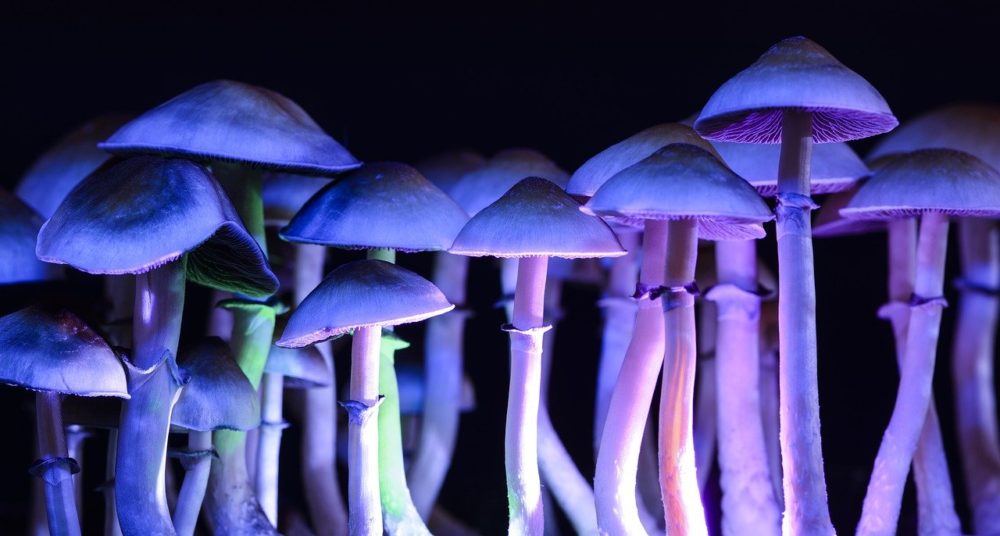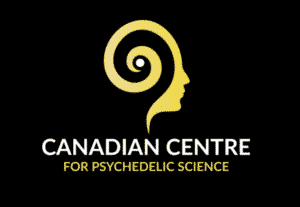
Psilocybin’s Path to Legalization in Canada
Despite being shown to be one of the safest “recreational” drugs, the legalization of psilocybin in Canada is at least a few years away, even for use in medical settings as it has show beneficial outcomes for the treatment of anxiety, depression, addiction, and potentially more. With many movements occurring in the states to decriminalize naturally occurring psychedelics, many Canadians have been wondering when we’ll see similar advances in making this an accessible medicine. As well, Nixon’s “War on Drugs” campaign resulted in devastating effects on society, such as the over-incarceration of BIPOC, which is still being seen today. Frshmind’s had the opportunity to speak with two organizations involved in both the scientific and drug policy areas of psychedelic research regarding their perspectives on the current movements and how they see psilocybin’s path to legalization unfolding, the Canadian Center for Psychedelic Science/Psychedelic Studies Research Program and the Multidisciplinary Association for Psychedelic Studies (MAPS) Canada.
Canadian Center for Psychedelic Science/Psychedelic Studies Research Program
Rotem Petranker, a clinical psychology Ph.D. student at York University, is the co-founder of the Canadian Center for Psychedelic Science and associate director of the Psychedelic Studies Research Program at the University of Toronto Mississauga. The CCPS/PSRP has published some of the first academic research on psychedelic microdosing, and will be conducting a randomized, placebo-controlled, double-blind clinical trial utilizing psilocybin. See what Rotem has to say about the legalization of psilocybin in Canada:
The CCPS/PSRP is focused on researching the benefits and drawbacks of microdosing. If found to be effective, can you see this accelerating legalization of psilocybin in Canada?

Certainly, although I think that it is important to approach this kind of work with scientific curiosity rather than the need to find proof for an already-existing belief. IF our results show that there are negligible side effects and detectable positive outcomes, I expect our results to accelerate the legalization of psilocybin in Canada. It is important to remember, however, that we may find unpredictable side-effects or fail to detect any positive outcomes.
What roadblocks or challenges do you see for legalization efforts?
LIn my opinion, the problem that we can address is the lack of high-quality evidence. Much psychedelic research is aimed to substantiate preconceived notions and therefore may have biased results. Additionally, many studies are underfunded and are mere proofs of concept. Increased governmental funding would greatly improve the quality of evidence regarding psychedelics, which would then enable policymakers to make informed decisions about legalization.
What’s some advice you have for Canadians interested in advocating for or aiding in psilocybin legalization efforts?
Don’t do anything illegal, donate your time and/or money to helping grassroots organizations that put pressure on politicians, and volunteer with organizations that legitimately want to study psychedelics rather than proving that they work.
What advice do you have for those who have heard about the promise of psilocybin and are curious to explore it as an option for their mental health?
While current evidence suggests that these substances are mostly safe, they are still illegal and could be dangerous if even because they are adulterated with other substances. If you intend to use substances purchased on the black market, make sure you test them before using them.
How do you see psychedelic medicine and therapy evolving in the future? Do you see it going more of the pharmaceutical route or natural health product route?
Judging by the current movements in the industry I expect it to be a pharmaceutical industry.
Where do you think Canada will stand with psilocybin in 5 years?
I hope that within that time frame we will have sufficient evidence to legalize psilocybin at least for medical use. At the same time, I hope that the Canadian government acknowledges that drug abuse is a mental health issue and not a criminal issue and that those who suffer from drug use should be helped rather than criminalized. In our lifetimes we have seen the transformation of cannabis from a dangerous gateway drug to a staple of the economy, and not long ago alcohol was also illegal. The government should make and create strong policies to protect our agency over our bodies, acknowledge our wisdom to use substances as we see fit, and giving us free mental healthcare as needed.
Multidisciplinary Association for Psychedelic Studies Canada

Taylor Rodrigues is the National Drug Policy Lead of The Multidisciplinary Association for Psychedelic Studies (MAPS) Canada, a registered, charitable, non-profit, Canadian organization that is committed to planning, conducting, and publishing scientific research and education supporting the beneficial uses of psychedelic medicines. Taylor took the time to answer our questions regarding the work of MAPS to aid in legalization efforts and his opinions on how he sees that unfolding:
Can you give us a brief overview of some of the work that MAPS Canada is doing to aid efforts for psilocybin legalization?
MAPS Canada advocates for the legalization of all psychedelics, including psilocybin, for beneficial uses. MAPS Canada believes that psychedelics should be legal and accessible for all beneficial uses including treatment for medical conditions, neuroscience, creativity, and spirituality. Currently, MAPS Canada has an open letter (closing for signatures on July 1, 2021) calling on the Canadian Parliament to decriminalize the personal possession of all drugs and create a framework to fully decriminalize all psychedelics. There is great interest across society and the political spectrum to decriminalize simple possession of drugs, but doing so would not change other offenses relating to illegal drugs such as manufacturing drugs or trafficking drugs. MAPS Canada believes that other activities surrounding psychedelics such as growing and sharing psilocybin mushrooms should also be decriminalized.
In addition, MAPS Canada is a supporter of the Canadian Psychedelic Association’s Psilocybin at End of Life Campaign. The Campaign is seeking to legalize psilocybin-assisted psychotherapy for palliative Canadians. Dozens of Canadians have already received s.56 exemptions from the Controlled Drugs and Substance Act to be able to legally possess psilocybin mushrooms for psilocybin-assisted psychotherapy. Most of the Canadians who received an exemption had terminal cancer, were suffering from end-of-life distress, and considering medical assistance in dying. End-of-life distress often causes diminished quality of life, suicidal ideation, and a desire for hastened death. Psilocybin-assisted psychotherapy has been transformational for many of these individuals, helping patients surface concerns about their mortality and improve their quality of life.
What is Bill C-22, and can you fill us in on some of the concerns MAPS Canada has regarding it?
Bill C-22 was introduced by the federal Minister of Justice on February 18, 2021. From a drug policy perspective, it proposes to make three main changes. First, it would eliminate mandatory minimum penalties (MMPs) for all drug offenses. With most criminal offenses, there is a maximum penalty associated with it but no minimum, allowing judges wide discretion to take mitigating factors into account when giving out sentences. MMPs require judges to give a minimum jail sentence to everyone convicted of some offenses, regardless of mitigating factors like an offender’s substance use disorder or other circumstances. Removing MMPs gives judges the flexibility to give sentences that are lower or higher than the MMPs that would be eliminated. If the MMPs for all drug offenses are eliminated, I expect the average jail sentence for drug offenses to decrease. Many individuals who are convicted of drug offenses are often dealing with a substance use disorder, poverty, or both.
Second, bill C-22 would increase the use of conditional sentences. Conditional sentences are punishments where an offender must follow a series of rules like attending a drug treatment program or abiding by a curfew instead of immediately being sentenced to jail. If an offender violates the rules of their conditional sentence, they may have to serve the remainder of their sentence in jail. Conditional sentences are less punitive than jail sentences and allow convicted individuals to retain their jobs and ties to their community.
Third, bill C-22 would increase alternatives to criminal charges for personal drug possession. If passed, the bill would require police and prosecutors to consider alternatives to laying charges for cases of personal drug possession. Alternatives could include warning individuals, referring individuals to substance abuse treatment programs or other social services, or other measures.
The federal government stated, in so many words, that bill C-22 is supposed to remedy the fact that Indigenous and Black communities have been recipients of disproportionate sentencing; is supposed to be more supportive to people dealing with addiction; and to encourage remedies for possession that don’t include a criminal record. We at MAPS Canada feel that the bill will fail to meet these objectives, because the bill continues to allow a prosecutor to decide whether to enter a charge or take an alternative approach. This is a problem, because this discretion already exists, but charges are by far the most likely outcome. If the bill passes as written, possession remains a criminal offense and based on recent experience, charges will continue to be filed.
In addition to amending bill C-22 to remove the criminal offense of simple drug possession, MAPS Canada is asking for an additional amendment to the bill to require the federal government to create a national strategy to decriminalize psychedelics. We have so much evidence now to the effectiveness of psychedelic compounds in treating a variety of mental illnesses; in fact, they are being commonly used by thousands of Canadians every day for exactly this purpose. They do this quite comfortably, knowing that on a relative scale, psychedelics are far less harmful then other drugs, even regulated and legal substances like alcohol and tobacco. What would prevent officers, in the current conception of bill C-22, from ‘trumping up charges’ to ensure that people face criminal charges for simple possession?
What roadblocks or challenges do you see for legalization efforts?
I see three main challenges to legalizing psilocybin and other psychedelics: misinformation, getting on the policy agenda, and entrenched interests. Since the “War on Drugs,” there has been an incredible amount of propaganda surrounding all illegal drugs. The public was told that illegal drugs were all dangerous, highly addictive, and had no beneficial uses. When in fact, psychedelics are typically safer than legal drugs like alcohol and tobacco and about as safe as cannabis, have virtually no addiction potential, and have many beneficial uses. We need to overcome this misinformation to change the public and lawmakers’ opinions on psychedelics. Once we bust psychedelic myths and get the public on our side, we need to get a spot on the policy agenda. There are hundreds of great ideas to improve society but politicians only have so much attention and so much time to pass legislation. Finally, once we do get some politicians to take up psychedelics legalization, we will have to overcome the entrenched interests opposed to legalization. Legalization threatens the jobs of those enforcing laws criminalizing psychedelics and those providing competing mental health treatments.
What’s some advice you have for Canadians interested in advocating for or aiding in psilocybin legalization efforts?
Start small. There is still a great deal of stigma associated with all illegal drugs, including psychedelics. If you are comfortable and it’s safe for you to do so, educate your friends and family about psilocybin and try to address misunderstandings and myths about it. If you can, be honest about your use of psilocybin and be an example of a responsible psilocybin user. Don’t recommend that other individuals use psilocybin (unless you are a medical professional that can prescribe psilocybin). Psilocybin is not a “magic cure” and could worsen some medical conditions, especially if used without a sitter or an appropriate setting.
Be professional, reasonable, and patient. You are never going to be able to convince everyone that psilocybin should be legal and you don’t have to. Make logical arguments and try to stick to the clinical evidence and avoid relying on anecdotal experience. We are living through a psychedelic renaissance and public opinion is slowly changing but we won’t achieve legalization overnight. If you are very passionate and have the time, consider joining an organization such as MAPS Canada, the Canadian Psychedelic Association, or Therapsil to help advocate for the legalization of psilocybin and psychedelics in a more organized fashion. Together we can accomplish more than working alone. If you want to support psilocybin legalization but cannot advocate it for yourself because of your job or another reason, consider donating to MAPS Canada, the Canadian Psychedelic Association, or Therapsil.
What advice do you have for those who have heard about the promise of psilocybin and are curious to explore it as an option for their mental health?
Do your research and contact a health professional to see if psilocybin may be useful for you. Psilocybin has been credited as a “breakthrough” medicine and with transformational mental health benefits — but it is not an appropriate treatment for all mental health conditions. Psilocybin, like all drugs, is not for everyone and not without risks. Simply taking psilocybin has not been shown to be very effective at treating mental health conditions. The clinical research indicates that its imperative that psilocybin is combined with psychotherapy to effectively improve patients’ mental health.
Currently, psilocybin is a controlled substance in Canada and patients can only legally use it as part of a clinical trial or if they request an s.56 exemption from the federal Minister of Health. Psilocybin is legal in some countries such as the Netherlands and Jamaica and there is a growing market for psilocybin-assisted therapy where it is legal. None of those options are accessible for most people so many Canadians are considering underground psilocybin-assisted therapy. While of course, MAPS Canada cannot officially endorse taking part in underground therapy, people will continue to seek it out, so we can promote a harm reduction perspective. For individuals considering this option, I encourage them to vet the credentials and reputation of the therapist, consult with their medical doctor about potential contraindications and drug interactions, do their research about what is involved, and bring a close friend or family member they trust with them to the therapy session for safety.
How do you see psychedelic medicine and therapy evolving in the future? Do you see it going more of the pharmaceutical route or natural health product route?
I imagine psychedelic medicine will follow a path similar to cannabis. I believe psychedelics will become legal for medicinal uses. Then the public will recognize they have beneficial medicinal uses and will seriously consider whether they have beneficial non-medicinal uses. Then psychedelics will become legal for non-medicinal uses. I think psilocybin will first go the pharmaceutical route, where medicines will be developed with isolated psilocybin or psilocin from psilocybin mushrooms (psilocybin is converted in the body to the active compound psilocin). It is easier and more accurate to dose isolated psilocybin or psilocin than dried psilocybin mushrooms and there tends to be fewer side effects. Although in some countries, psilocybin mushrooms are treated similarly to natural health products, I believe Canada will take a more conservative approach initially. Later, in our lifetime I think we will see psilocybin mushrooms be legalized and regulated in a manner similar to non-medicinal cannabis.
Where do you think Canada will stand with psilocybin in 5 years?
The future is not predetermined. The efforts we take now and over the next couple of years, will determine the state of psilocybin five years from now. Given our current trajectory, I predict that five years from now psilocybin-assisted psychotherapy will be legal in Canada to treat several mental health conditions such as end-of-life-distress and depression. I predict that the public’s attitudes of psilocybin will have improved and many offenses surrounding psilocybin such as simple possession will be eliminated. It took 19 years for cannabis to be legalized for non-medicinal uses after a Canadian first received a section 56 exemption to use it. For context, the first section 56 exemption for psilocybin didn’t occur until 2020. We need much greater legalization efforts if we want psilocybin to be legal for non-medicinal uses five years from now.
Psilocybin’s path to legalization in Canada may be approaching faster than people realize. If you are curious about using psilocybin as a means to cultivate healing or well-being, consult with a psychedelic therapist beforehand. You can find one in your area on Frshminds.
Learn More About Decriminalization
If you are curious about the decriminalization of psychedelics, check out these other articles on Frshminds:

Comments